Commentary: Club SpongeBob
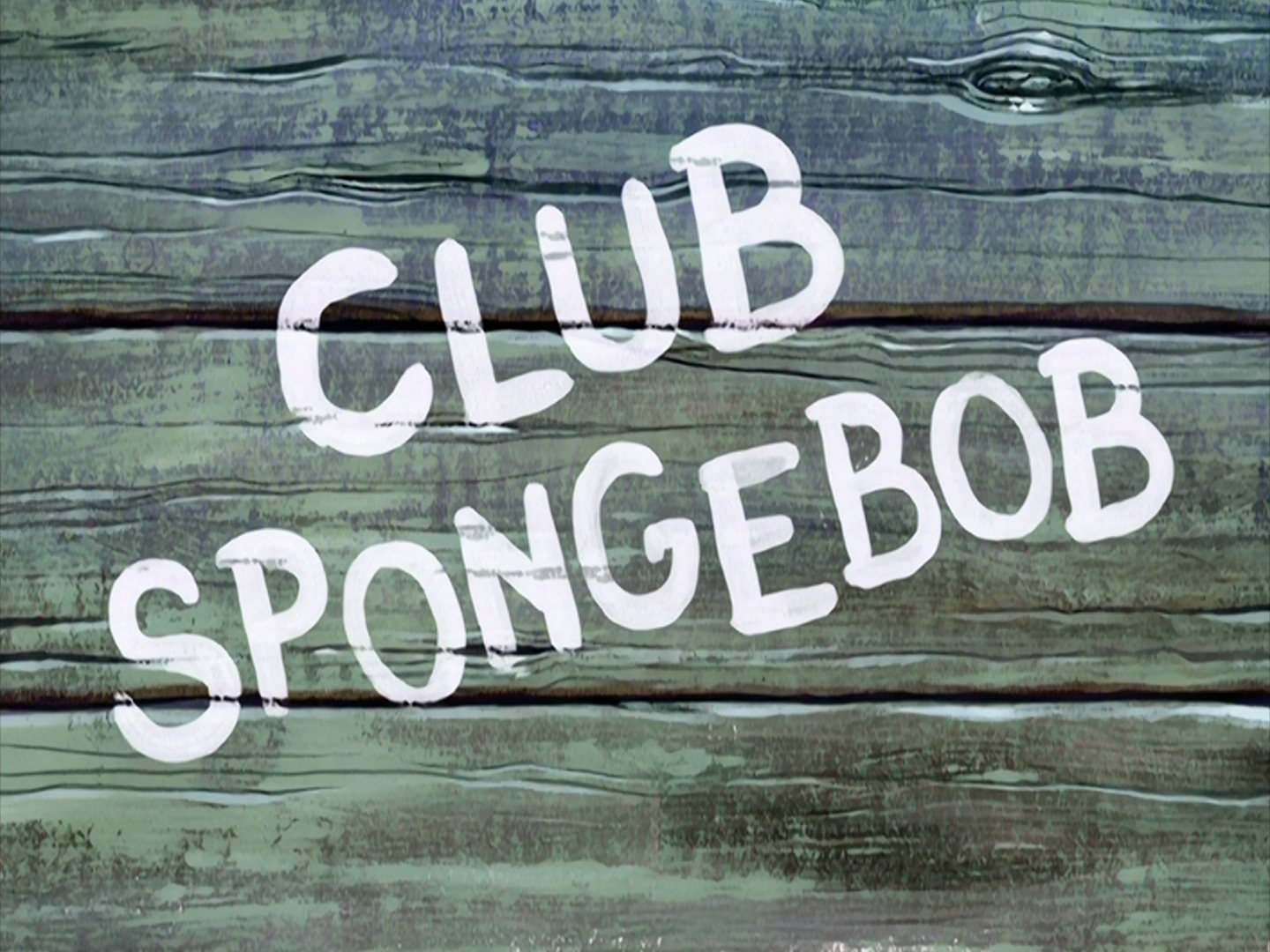
Club SpongeBob has most of the elements of the other episodes in this collection. There's the abhorrent, irrational “fun” thing that Squidward is denied access to (the magic conch), and it breaks his pride until he gives in, only to keep denying him. But something is different here: this episode seems to contain two copies of the structure—one nested in the other.
- Squidward goes out on his bike, but he's interrupted by SpongeBob and Patrick laughing from up in a treehouse.
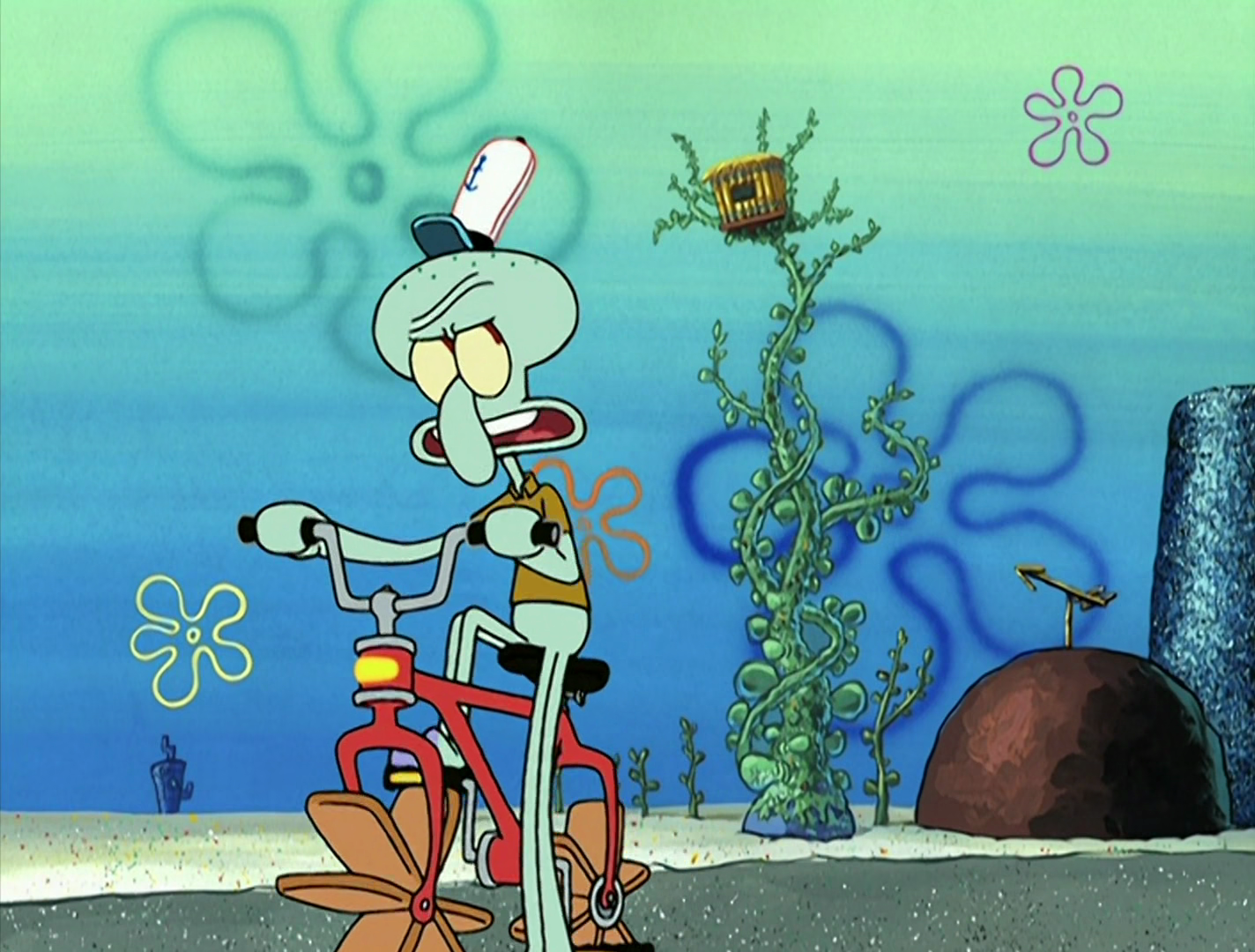 We have the following mini-episode:
We have the following mini-episode:
- Squidward gets bothered by SpongeBob and Patrick talking funny: “Wey wook, it's Widward.”
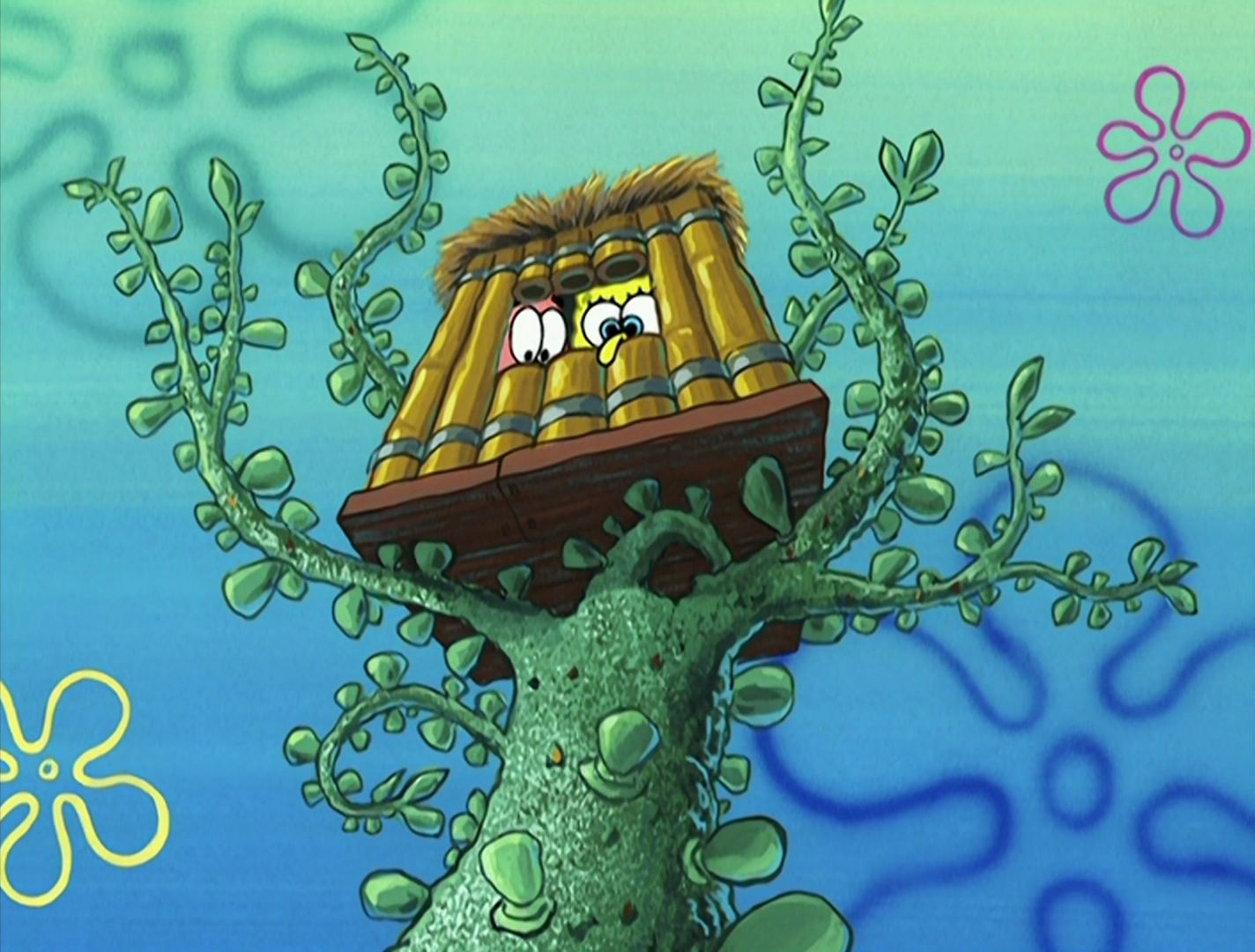
- “What's that supposed to be, some kinda stupid secret code?” says Squidward. “We can't tell you, cause you're not a member of the club.” Squidward rejects the idea of club membership: “What does it take to be a member—besides being a moron?”
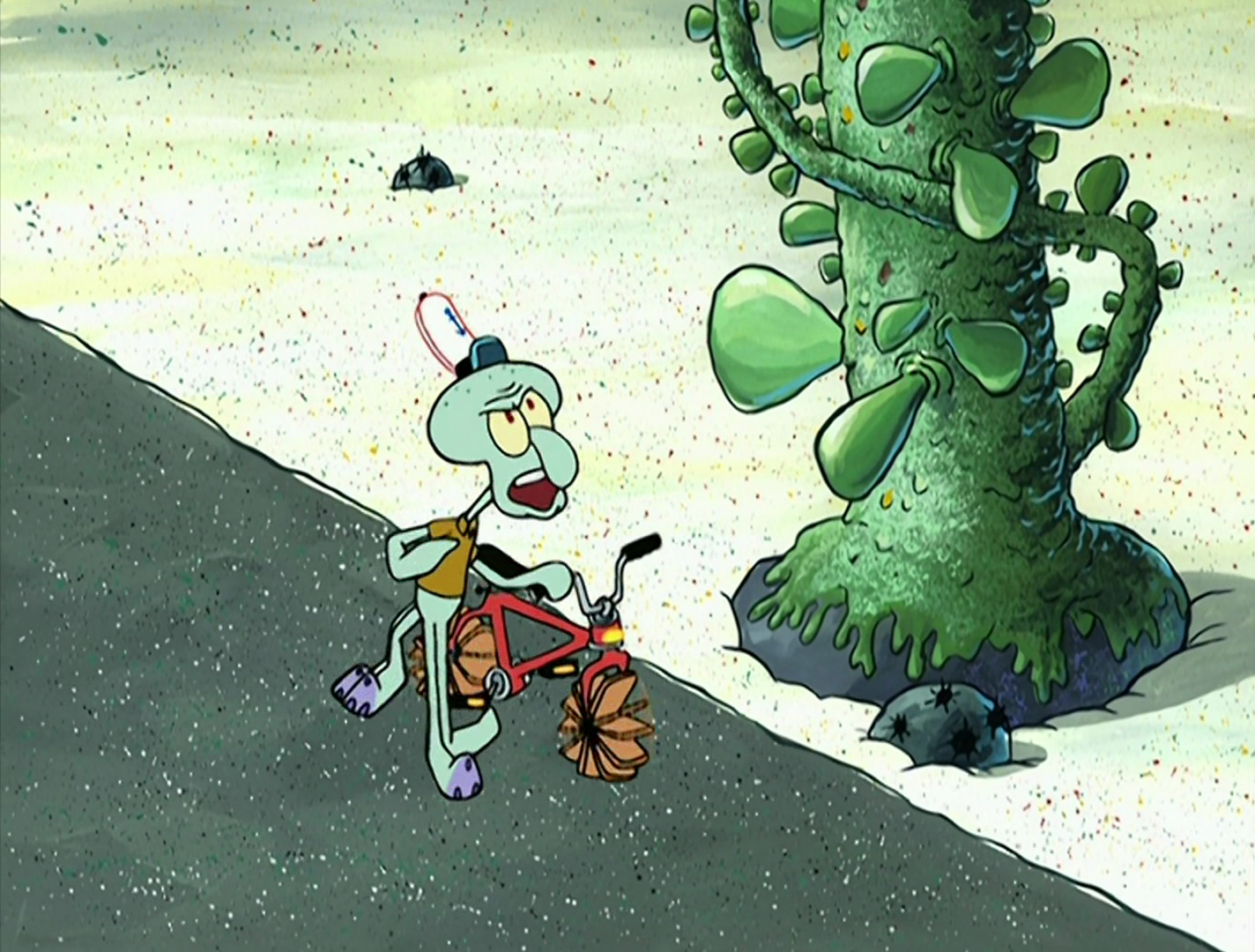
- SpongeBob remarks that Squidward couldn't get in even if he tried, because he wouldn't fit in. This makes Squidward want to get in even more.
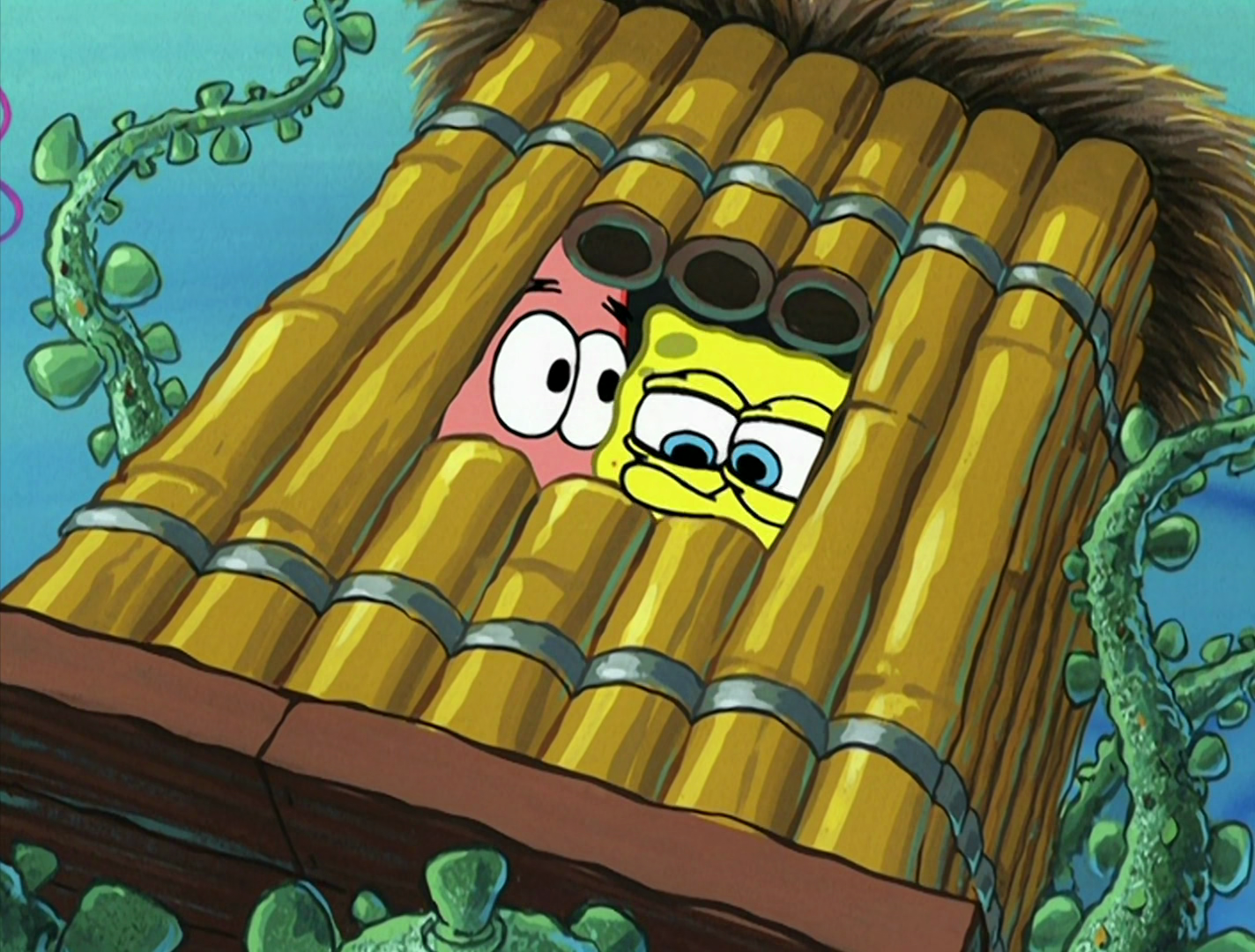
- He enters, despite the warnings of SpongeBob and Patrick, and it turns out they meant it literally—there was no room for him up there.
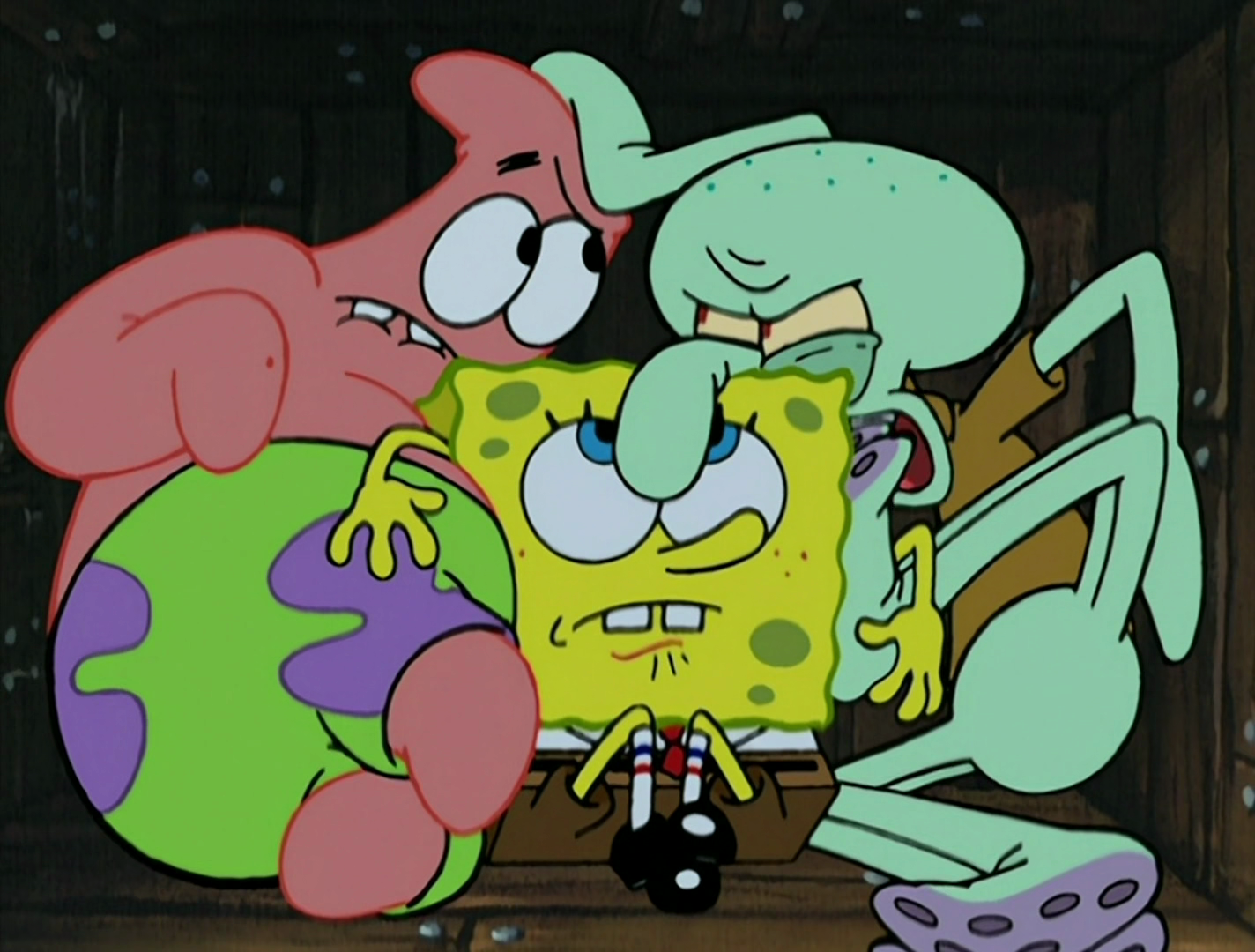
- Now that Squidward is in the club, they sing a welcome song for him, which of course makes him want to leave. Squidward tries to climb out. Doing so, he accidentally slingshots the treehouse into the woods.
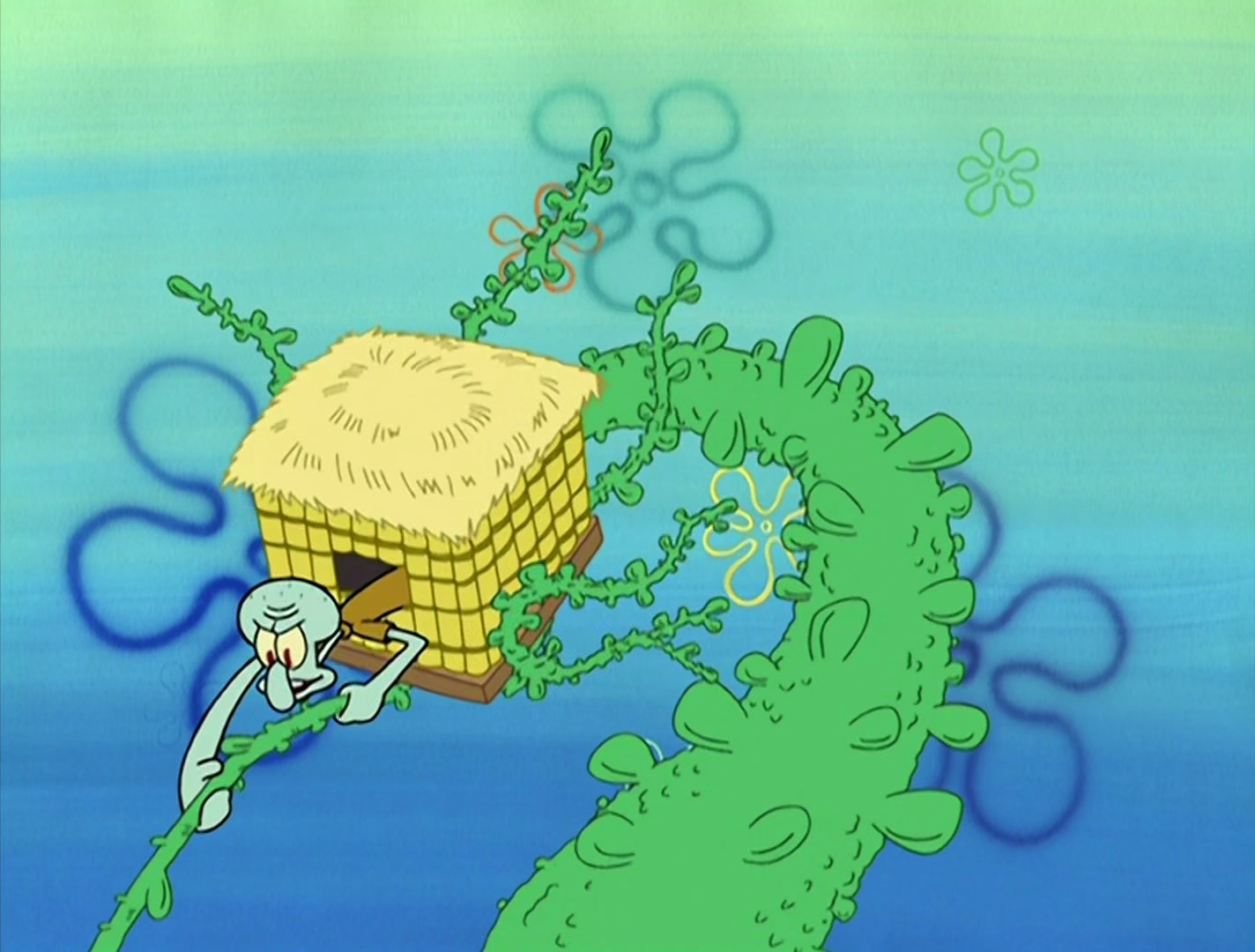
- Squidward gets bothered by SpongeBob and Patrick talking funny: “Wey wook, it's Widward.”
- They're lost in the woods, but SpongeBob shows his magic conch shell. “You've got to be kidding! That is just a stupid toy!” SpongeBob answers, “Squidward, we must never question the wisdom of the Magic Conch. The club always takes its advice before we do anything.” The Conch tells them to do nothing. Squidward goes away.
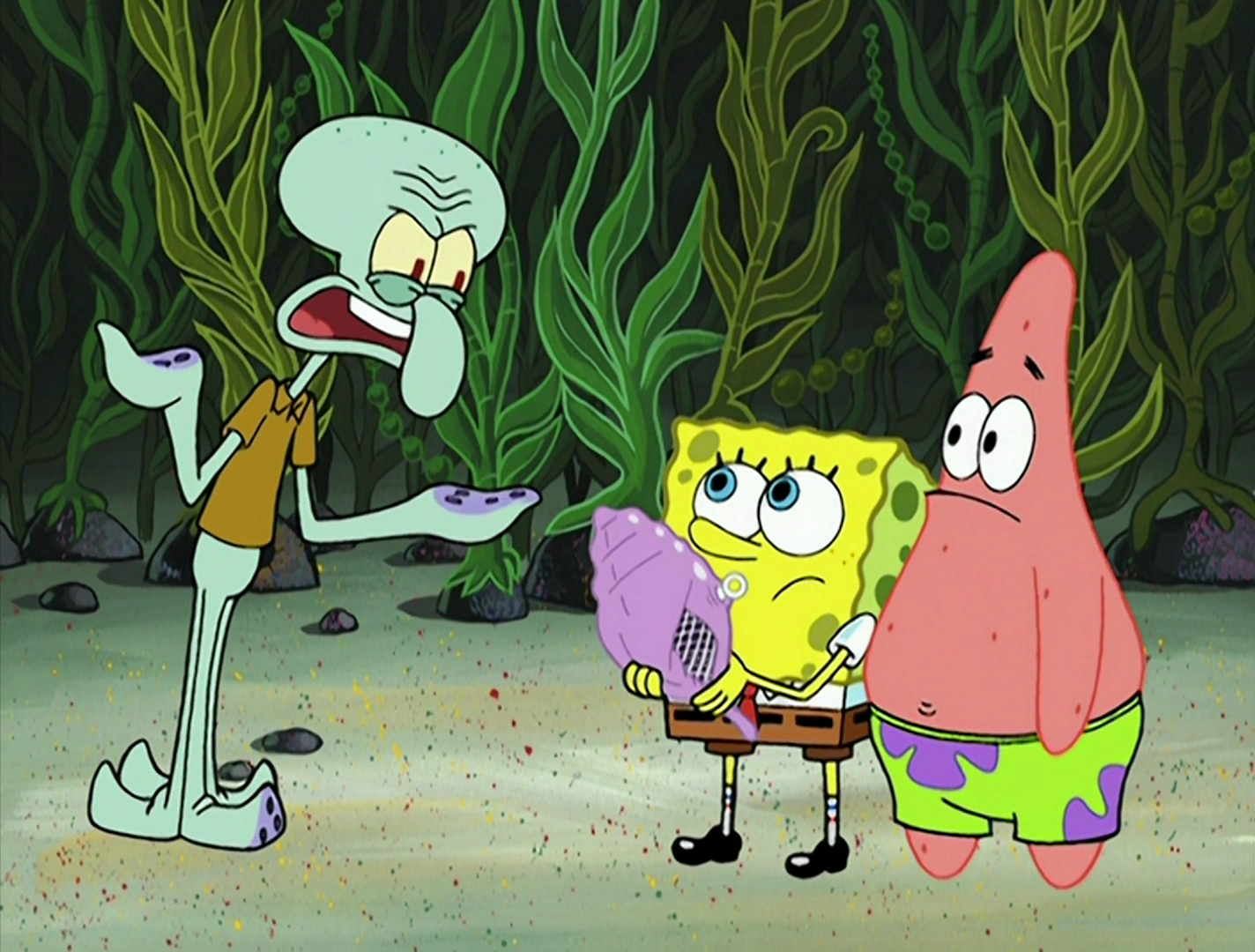
- Squidward sets off, but he gets lost and panics. When he sees light off in the woods, he follows it, celebrating himself, but he winds up back where SpongeBob and Patrick are. He sets up his own camp and tries to do things himself, frying up a bug.
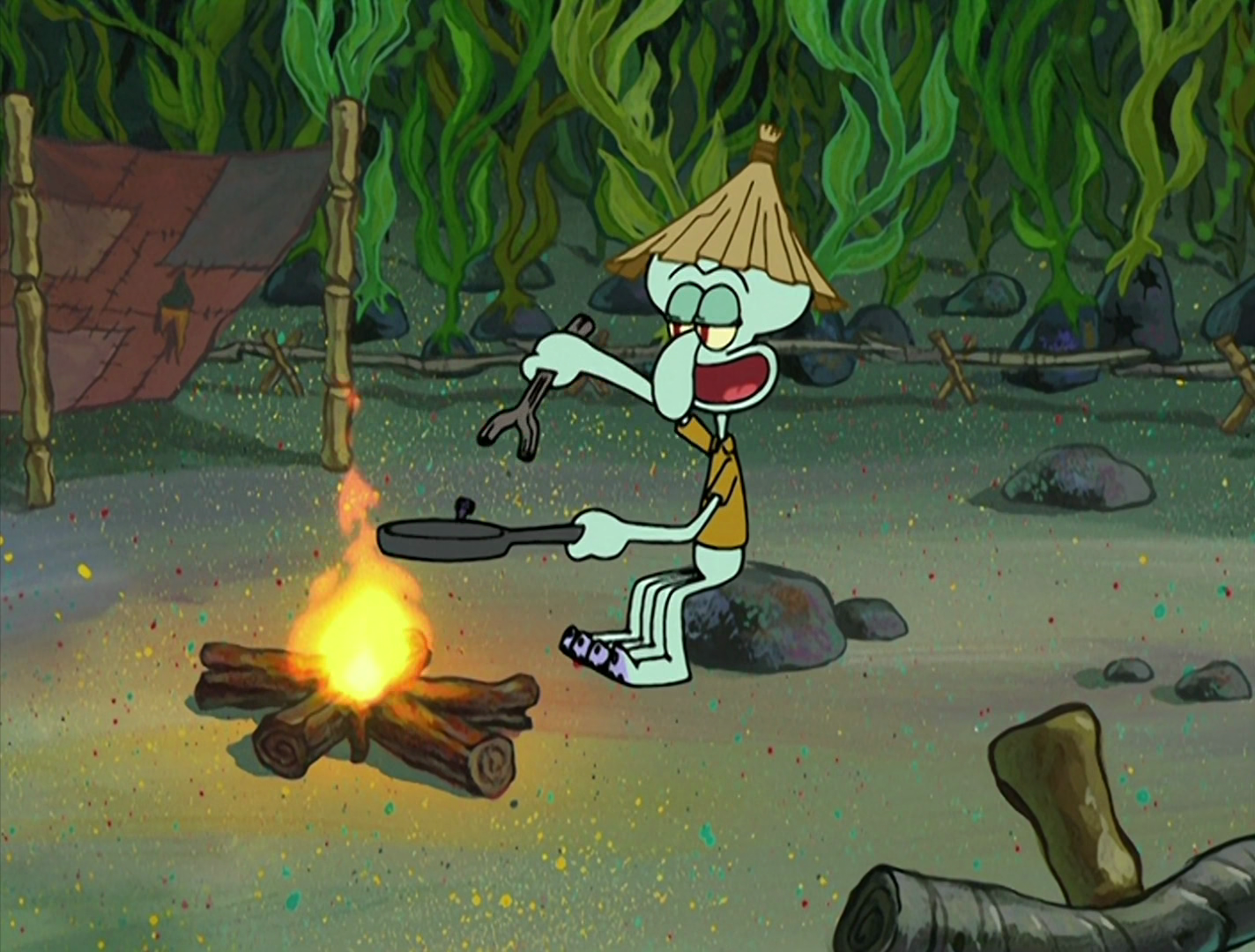 SpongeBob and Patrick just sit there, and a beautiful picnic falls out of the sky for SpongeBob and Patrick.
SpongeBob and Patrick just sit there, and a beautiful picnic falls out of the sky for SpongeBob and Patrick.
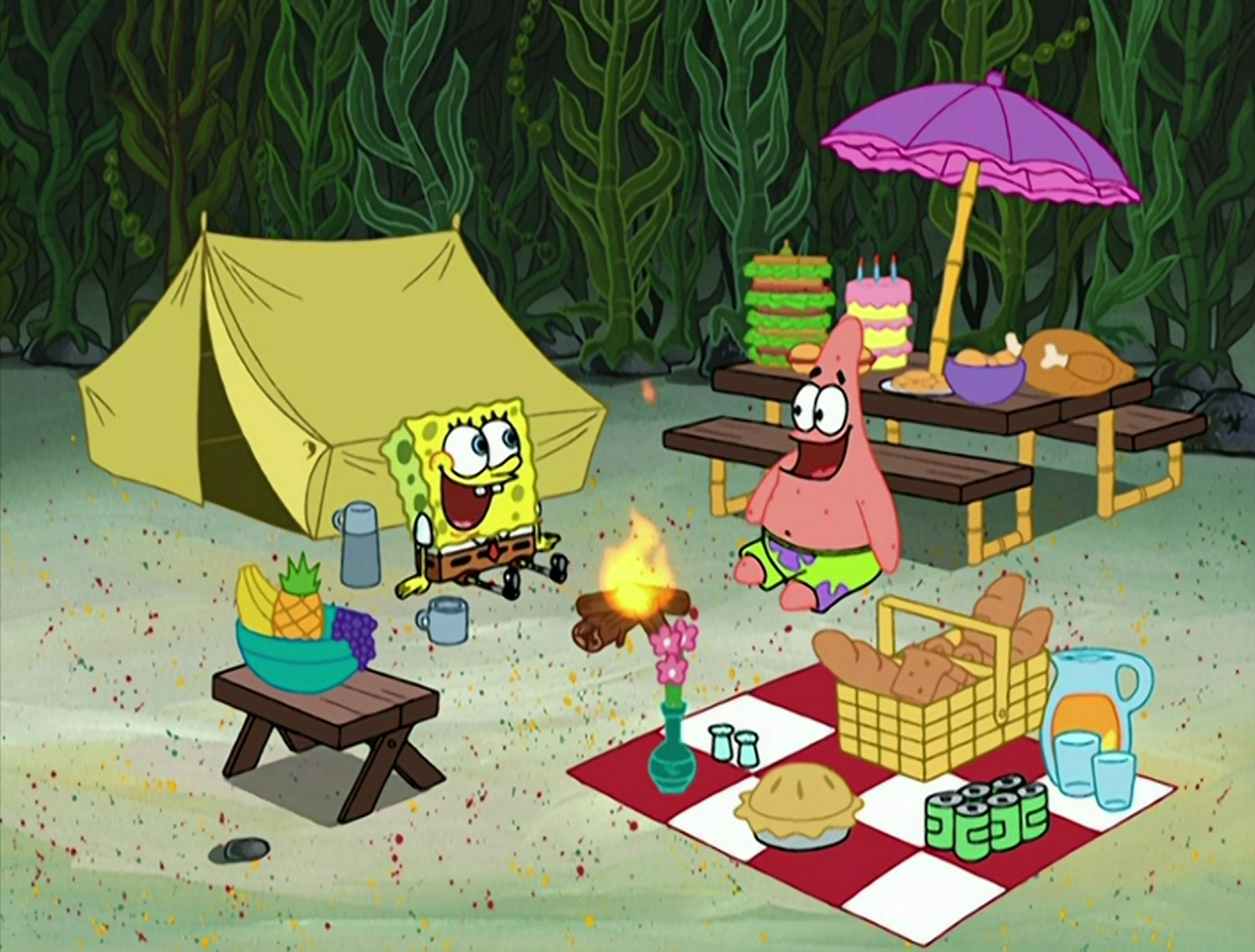
- Squidward asks for food, and SpongeBob and Patrick agree that he can have some. “What shall I eat first? The spaghetti, the turkey, the soup, the canned meat?” But when they tell him he should ask the Magic Conch, he questions its authority. “Maybe he's not a brother,” whispers Patrick. Squidward pretends to believe in the Magic Conch and asks it what he should have. “Neither,” says the Magic Conch.
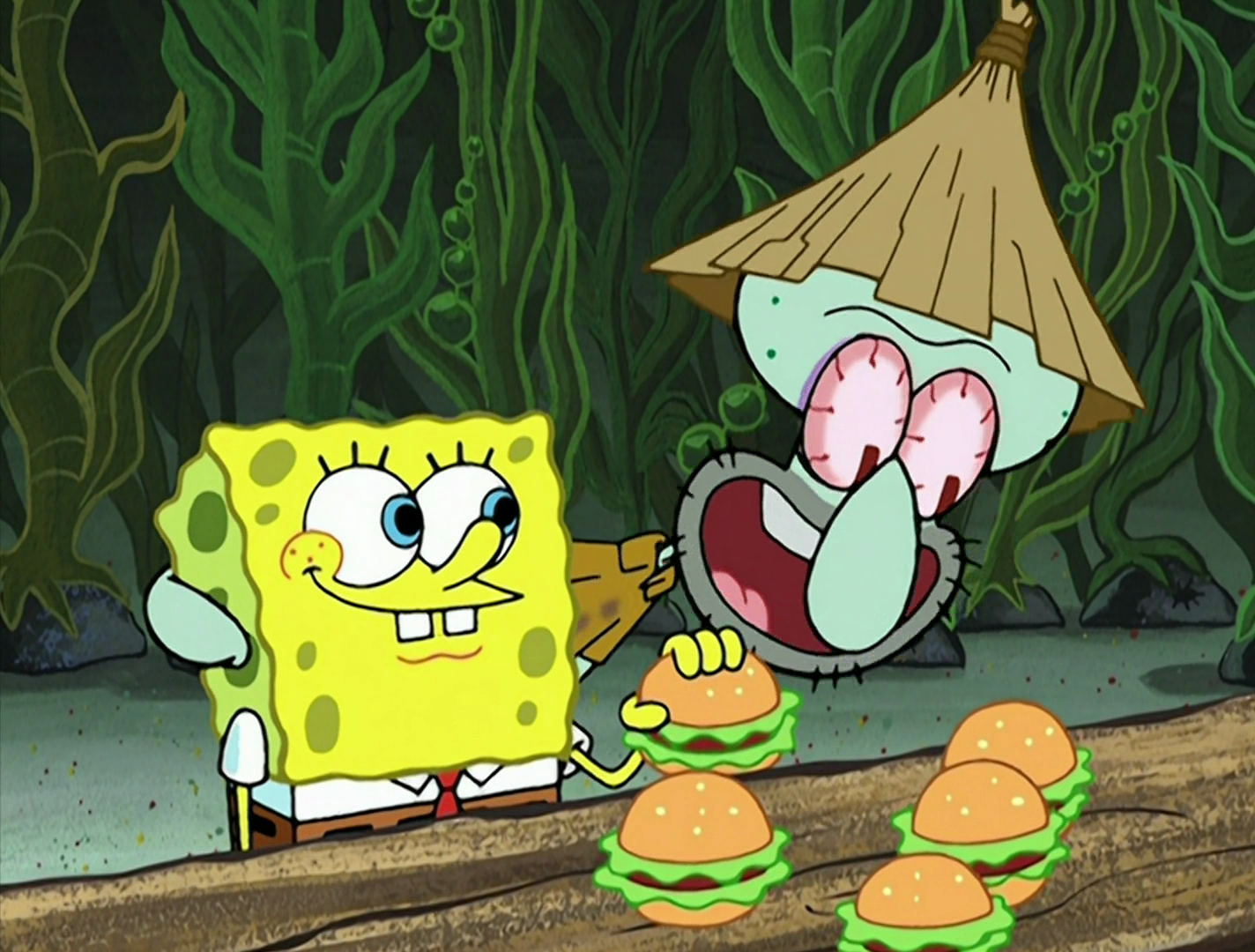
- Squidward begins to believe in the magic conch, desperately asking over and over if he can have something to eat. It keeps denying him. A park ranger discovers them—-and the ranger turns out to believe in the magic conch! The conch tells them to do nothing. SpongeBob, Patrick, and the ranger yell “All hail the Magic Conch!” Squidward, utterly defeated, sits down between them and repeats after them: “All hail the Magic Conch.”
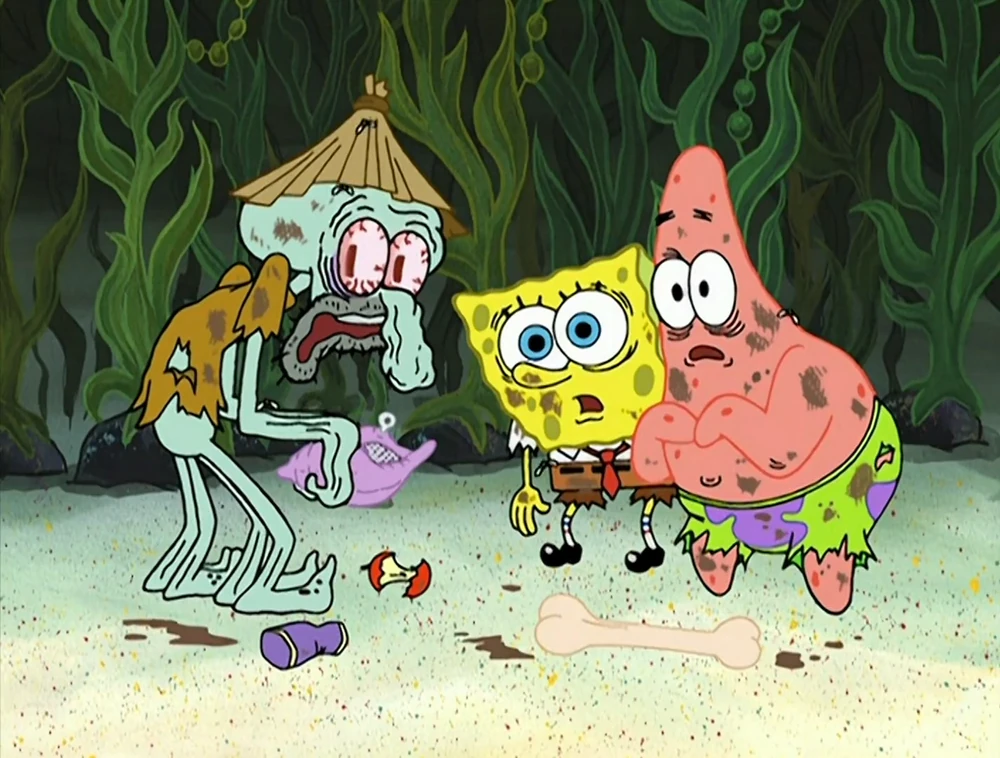
This does have two copies of the story pattern, and accordingly there are two objects of inaccessible “fun.” At first the object is club membership. But when Squidward enters into the clubhouse, the object becomes the magic conch. Why are there two objects of desire, each with its own plot structure?
Well, I noticed this episode is also the most directly religious I've analyzed so far, and that might be a clue. I think the two objects—the clubhouse and the magic conch—map onto two parts that make up religion—the sanctuary and the divine presence. The episode takes those elements in order: first an entrance to the holy place where secrets are kept, then an encounter with a maddening, senseless voice of authority. Seen this way, it describes the path of an outsider toward the presence of God.
I'm thinking about Durkheim's definition of the sacred: “set apart and forbidden.” Sacredness does seem to depend on exclusion—there must be a boundary between the unclean outside and the clean inside; and there must a difference between the unworthy and the worthy. Squidward is obviously unworthy of the sacred, but he claws himself into its presence anyway. Come to think of it, “Just One Bite” also had a sanctuary for the patties which were set off and forbidden. In both cases, Squidward can enter, but once he does it's clear he's not supposed to be there.
The divine presence is appropriate for Squidward too: from his perspective, the universe seems to be ruled by somebody out there who hates him.
Here's the path I'm talking about. First Squidward has no interest in religion, and what motivates him is simply the fact of his exclusion. Then once he's in, he witnesses the object of worship and rejects it. But then he's brought to worship it because it rejects him, personally. No matter what position he takes—outsider, insider, disbeliever, heretic, believer, supplicant—the answer is always that he can't be saved.
This looks like predestination, the notion that our tickets to heaven or hell are printed before we're born. I think it also looks like Catholic damnation: that the condition of the soul is fixed for eternity at the moment of death. It's as if Squidward is already dead!
This would make a neat fan theory: everybody's dead, Bikini Bottom is the afterlife, Squidward is in hell, SpongeBob is in heaven, and all forms of afterlife coexist in one place.
It may sound like I'm reading too much into a goofy cartoon, but I think it's always appropriate to ask why some images feel right for a character. The clouds, wings, and halo feel right for SpongeBob, and the burning chamber and outer darkness feel right for Squidward. This carries over into fan content as well. (See Squidward's Afterlife, which not only shows Squidward in hell but SpongeBob worshiping Baphomet! This one is about suicide, so don't watch it at a bad time.) It's appropriate to ask why this feels right for the characters, and what view of religion is implicitly suggested by all this imagery of the afterlife.
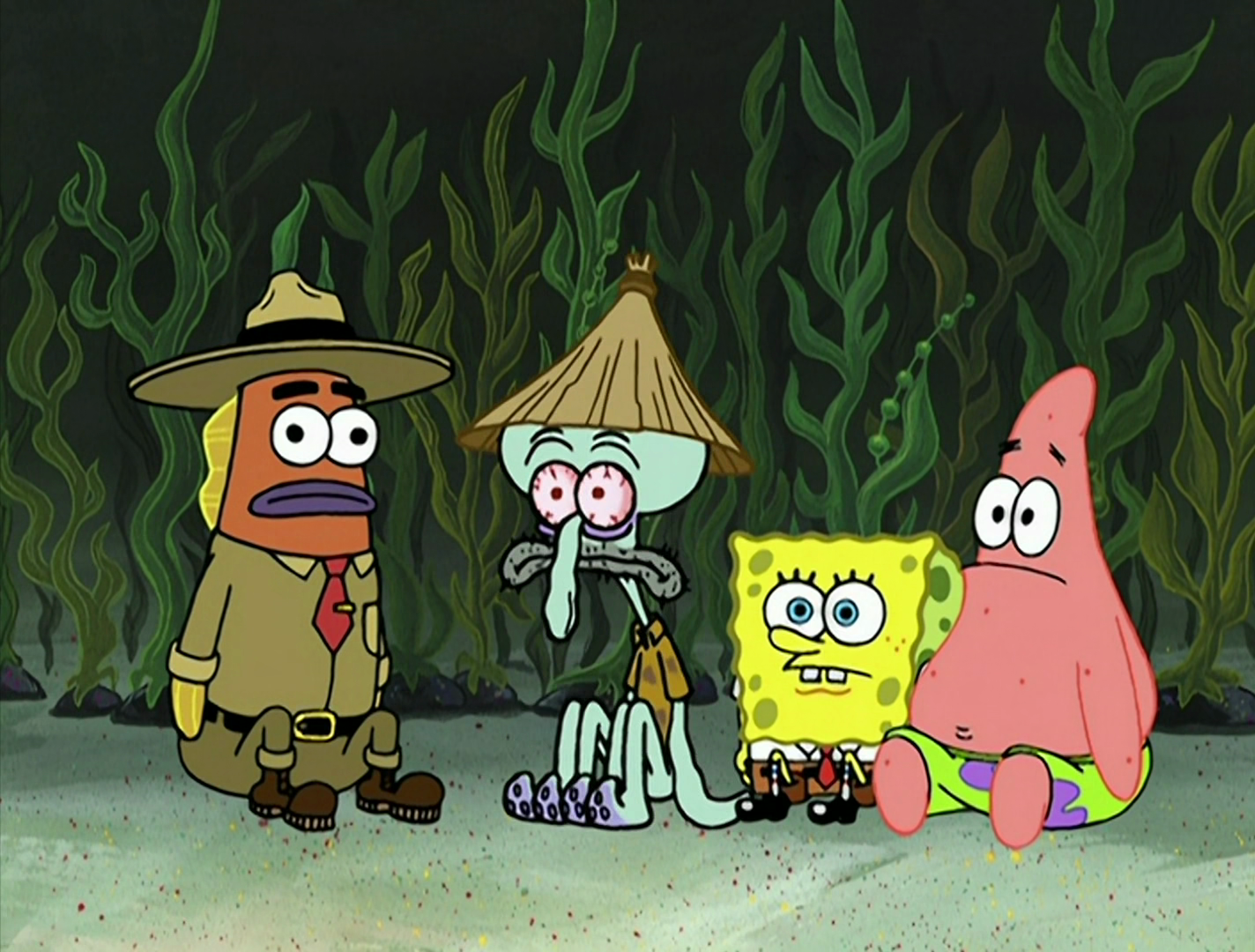
As I see it, SpongeBob draws an analogy between damnation and “being a Squidward,” but the association could go in either direction:
- Squidward's predicament, one of permanent exclusion, pride, and self-defeat, is an allegory for damnation.
- Imagery of damnation helps to explain Squidward's predicament.
Not that I don't care about the fate of my soul, but I'm more interested in the second direction: I want to investigate Squidward's predicament. Nobody wants to be a Squidward, but what is it like to be one? How do real people fall in that pit, and how do they climb out of it?
I'm sure I didn't cover all episodes with this pattern. If there are more from later seasons (after I stopped watching), please do let me know.